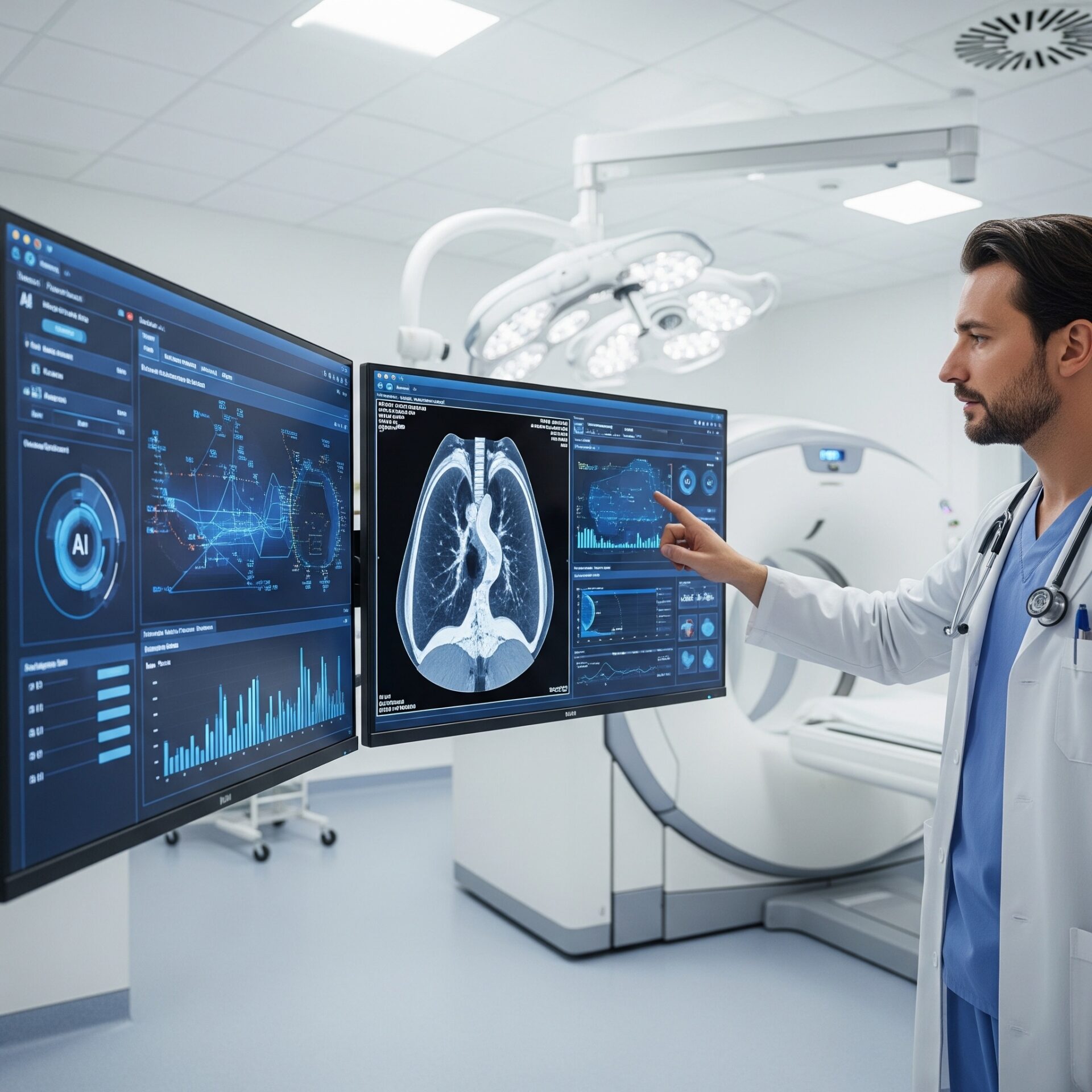Hospital-Industry Partnerships Accelerate to Build Next-Generation Healthcare Service Ecosystem
South Korea’s healthcare sector is embarking on comprehensive digital innovation centered on artificial intelligence (AI) technology, with simultaneous multi-faceted initiatives underway to deliver patient-centered, personalized medical services.
Accelerating Data-Driven Healthcare Ecosystem Development
Major medical institutions, including Seoul St. Mary’s Hospital of the Catholic University of Korea, are actively establishing open collaborative frameworks that leverage their clinical data assets. A recent healthcare data utilization competition highlighted AI solutions directly applicable to real medical settings, including patient prognosis prediction, diagnostic assistance, and hospital resource optimization.
This movement demonstrates hospitals’ commitment to transcending their traditional role as treatment facilities to become innovation technology development hubs. Medical professionals aim to enhance patient care quality by sharing accumulated high-quality clinical information with external research teams, ultimately promoting practical technology development.
Paradigm Shift in Daily Health Management
Meanwhile, technology companies are focusing on implementing prevention-centered healthcare services through devices consumers encounter in their daily lives. AI-based healthcare services that provide real-time monitoring of individual health conditions and personalized advice based on biosignal information collected from smartwatches and wearable devices are scheduled to launch within the year.
These services comprehensively analyze various health indicators including sleep patterns, heart rate, and stress levels to suggest lifestyle improvement strategies to users. Particularly noteworthy is the integration of medical professionals’ expertise into AI models to provide health guidance that general users can easily understand.
Specialized Medical Device Development for Specific Conditions
With the transition to an aging society, active development of AI medical devices specialized for specific diseases is also underway. New approaches combining wearable technology with AI are being attempted in areas like dysphagia, where limitations of existing diagnostic methods have been highlighted.
While traditional methods involved one-time examinations or radiation exposure, new technologies enable continuous monitoring in patients’ daily lives. AI models that learn individual symptom characteristics can suggest personalized treatment approaches, leading to more effective treatment outcomes.
Industry-Wide Structural Transformation Outlook
These changes herald structural transformation across the entire healthcare industry. As boundaries between hospitals and technology companies blur, new forms of collaborative models are emerging. Particularly notable are movements to secure global networks through acquisitions of overseas medical platform companies.
Experts anticipate that these changes will bring fundamental innovation to healthcare service delivery methods beyond simple technology adoption. Paradigm shifts are expected to accelerate from treatment-focused to prevention-focused approaches, from one-time consultations to continuous care, and from standardized treatments to personalized solutions.
Regulatory Environment and Commercialization Challenges
However, challenges remain before these innovative technologies can be established in actual medical settings. Medical device licensing procedures, data security, and acceptance by medical staff and patients are identified as major considerations.
Nevertheless, the industry expects AI technology to improve healthcare accessibility and treatment effectiveness while contributing to healthcare cost reduction. Particularly as healthcare cost burden increases due to aging become a social issue, the role of AI-based preventive medicine is expected to become increasingly important.
Reference Sources
- Medifnews: https://www.medifonews.com/news/article.html?no=204925
- Munhwa Ilbo: https://www.munhwa.com/article/11518592
- Korea Health Industry Development Institute: https://www.khanews.com/news/articleView.html?idxno=234612

